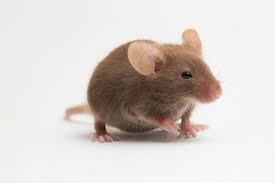Mice can be a serious nuisance in any household or business setting. They can cause damage to property, spread diseases, and contaminate food. That’s why it’s important to use an effective mouse trap to get rid of them. However, choosing the right bait for your mousetrap can make all the difference in whether or not your trap will be successful. In this article, we’ll explore the best bait options for mouse traps, so you can be sure to catch those pesky rodents.
Peanut Butter
Peanut butter is one of the most popular baits for mouse traps. It’s a great option because it’s sticky, so the mice have to work to get it off the trap, giving you a higher chance of catching them. It also has a strong scent that can attract mice from far away. To use peanut butter as bait, simply put a small dollop on the trap and wait for the mice to come.
Cheese
Cheese is a classic bait for mouse traps, thanks to its strong and distinct aroma. Many people have had success using cheese as bait for their mouse traps, although it’s not always the most effective option. Some mice are not as attracted to cheese as others, so it’s important to try a few different baits to see which one works best for you.
Chocolate
If you’re looking for a sweet and tempting bait option, chocolate might be the way to go. Mice love the sugary smell of chocolate and will often be attracted to it. Just be sure to use a small amount, as too much chocolate can melt and make a mess on your trap.
Nuts
Nuts are another popular bait option for mouse traps, as they have a strong scent and are high in protein. You can use any type of nut, such as almonds, walnuts, or cashews. Simply place a small piece of nut on the trap and wait for the mice to come.
Bacon
If you’re looking for a high-protein option that will also make your mouse trap smell delicious, bacon might be a perfect choice. It’s a strong-smelling bait that mice will be sure to notice. Just be sure to use a small piece and replace it frequently to keep it fresh.
Pet Food
If you have pets, using their food as bait might be an effective option. Mice are attracted to the scent of pet food, and it’s a convenient option if you already have it on hand. Just be sure to use a small amount, so your pet doesn’t get too hungry.
Bird Seed
Bird seed can be a great bait option, especially if you have a bird feeder outside your home. Mice are attracted to the smell of birdseed and will often venture into your home to find it. Place a small amount of birdseed on your mouse trap and wait for the mice to come.
How To Trap A Mouse Using Bait?
Step 1: Choose the Right Trap
There are different types of traps available in the market, such as snap traps, glue traps, and live traps. The best type of trap to use depends on your personal preference and the situation you are dealing with. For example, if you want to catch the mouse alive, you may want to use a live trap. If you prefer a quick and humane method, a snap trap may be the best choice. Choose the trap that works best for you and your situation.
Step 2: Choose the Right Bait
As mentioned earlier, choosing the right bait is crucial in trapping a mouse. Mice are attracted to a variety of different smells, so you have several options to choose from. Popular bait options include peanut butter, cheese, chocolate, nuts, bacon, pet food, and birdseed. Choose a bait that has a strong odor and appeals to mice.
Step 3: Place the Bait
Once you have chosen your trap and bait, it’s time to place the bait on the trap. Depending on the type of trap, you may need to use a small amount of bait or a larger piece. Be sure to place the bait in the center of the trap, so the mouse has to step on the trap to get to it.
Step 4: Place the Trap in the Right Location
Mice are most active at night, so it’s best to place the trap in areas where mice are likely to travel. This may include areas where you have seen mouse droppings or heard scratching noises. It’s also a good idea to place the trap against a wall, as mice prefer to run along walls.
Step 5: Check the Trap Regularly
It’s important to check the trap regularly, at least once a day, to see if you have caught a mouse. If you catch a mouse, be sure to dispose of it in a humane way, such as releasing it outside or using gloves to dispose of it in the trash. If you do not catch a mouse after a few days, try moving the trap to a different location or using a different bait.
Conclusion:
In conclusion, there are many different bait options for mouse traps, and the best one for you will depend on your individual situation. The key is to experiment with a few different baits to see which one works best for you. Remember to use a small amount of bait, so the mice have to work to get it off the trap, and replace it frequently to keep it fresh. With a little bit of patience and the right bait, you’ll be able to get rid of those pesky rodents in no time.
Book Professionals: Mice can be a real nuisance, invading homes and businesses and causing damage to property. While there are many do-it-yourself methods for controlling mice, sometimes it’s best to leave it to the professionals. A professional pest control service can provide effective and long-lasting solutions for mouse control. If you are in need of mouse control services in Adelaide, Rip Rodent Control Adelaide is the best pest control service provider. You can give them a call at 0488 851 508 for the best quality pest control services in Adelaide.


